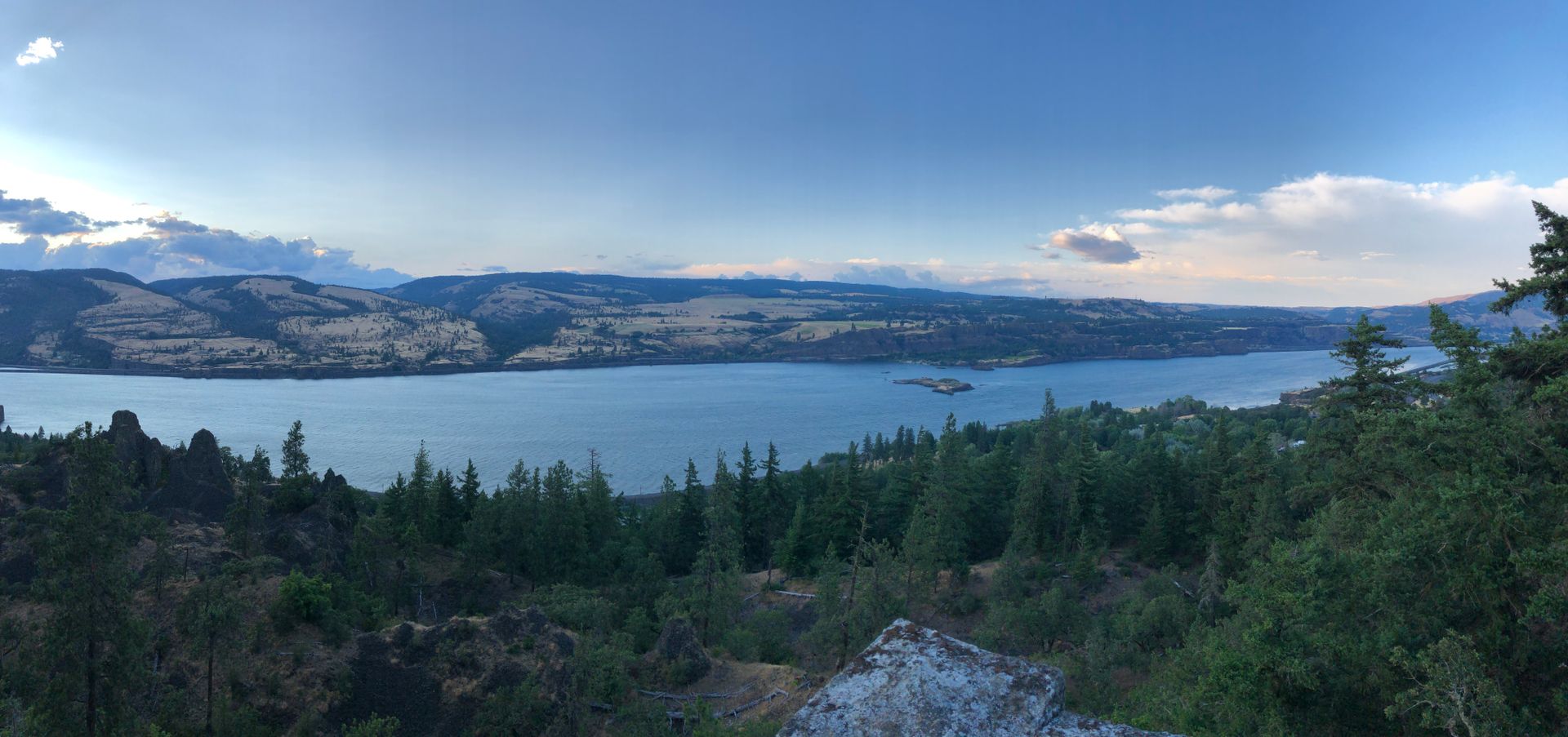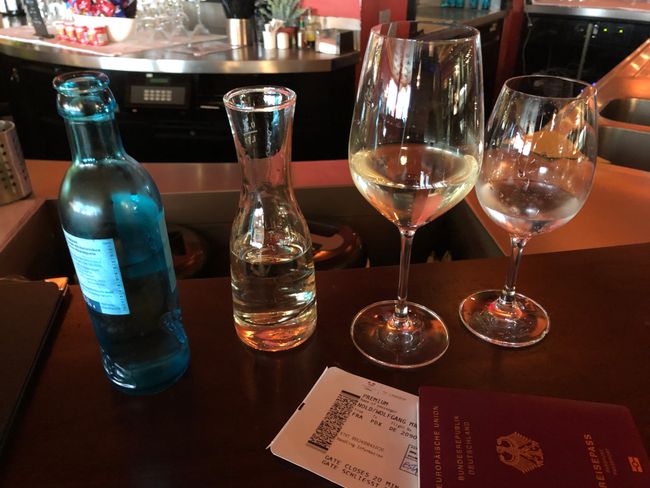
USA Canada Summer 2019
vakantio.de/usacanada2019
10th Day (Mountain View - Glacier National Park - Kalispell)
Ebimisami: 11.07.2019
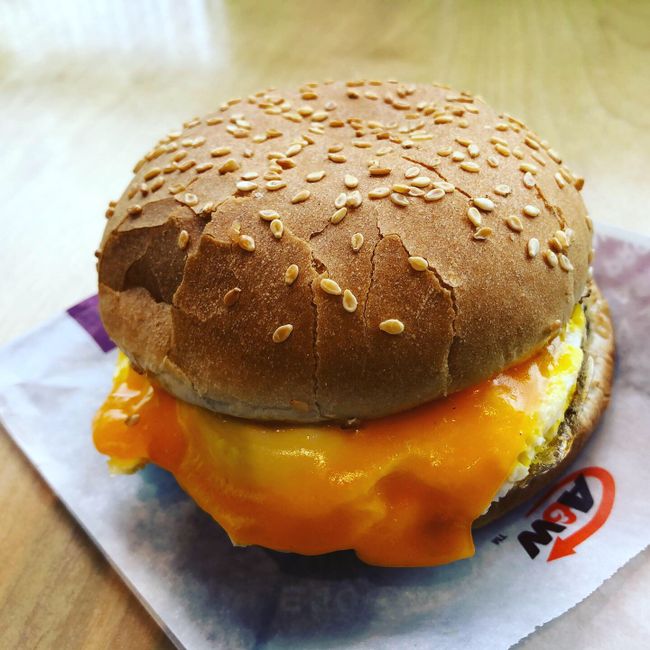
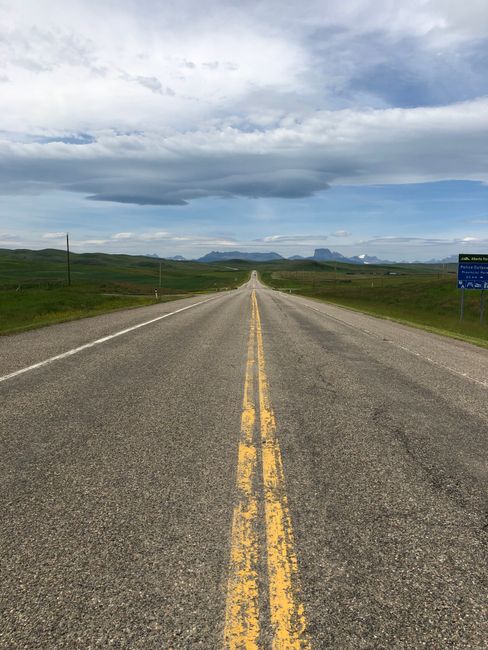
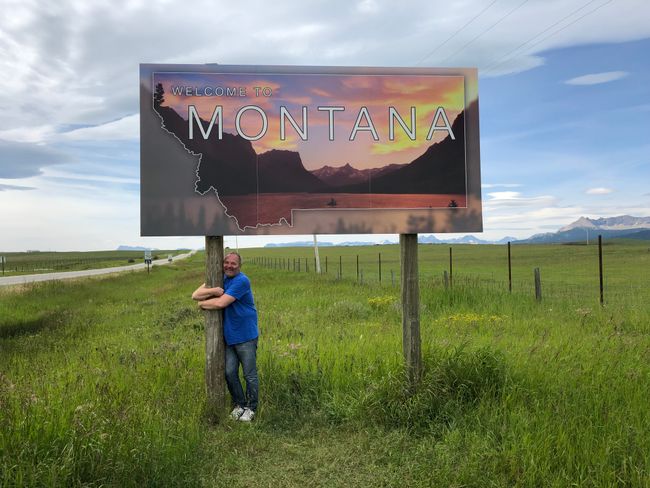
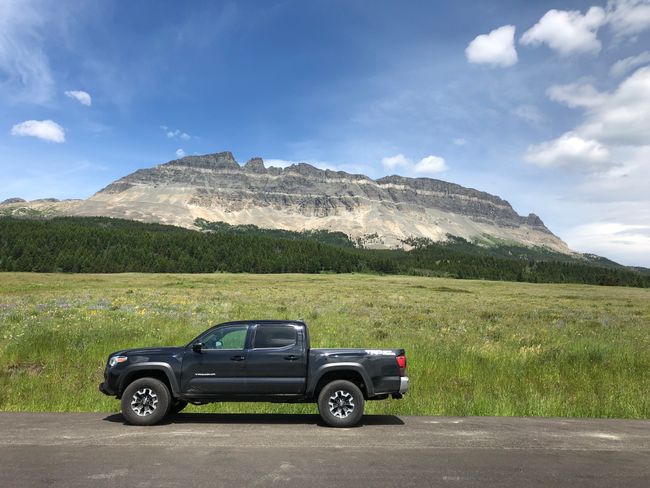
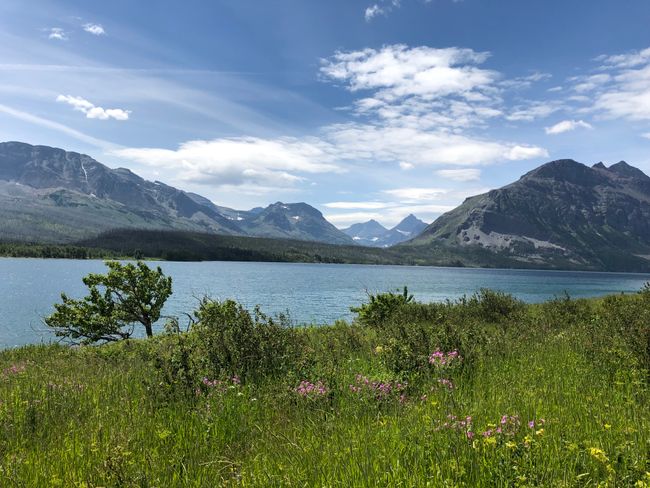
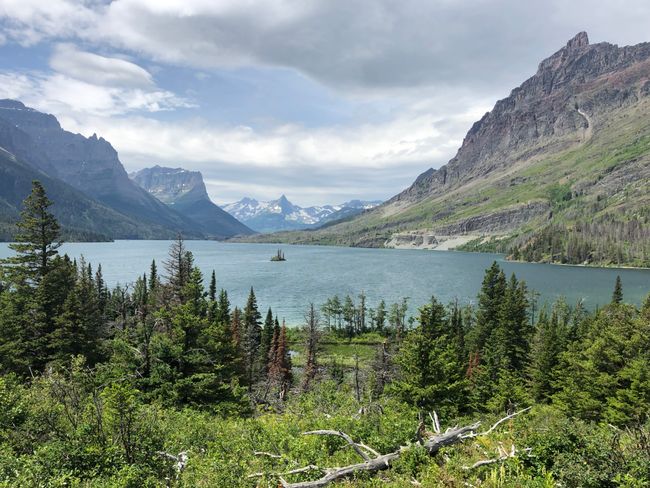
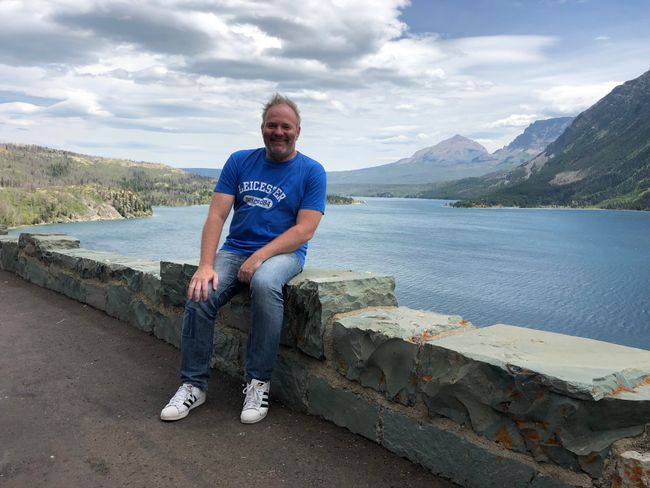
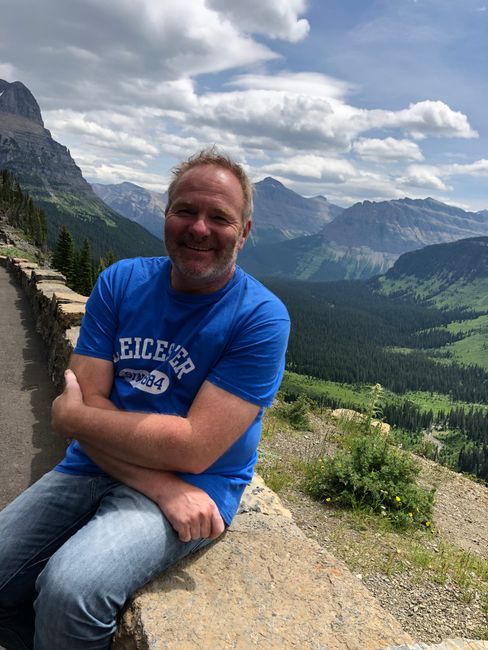
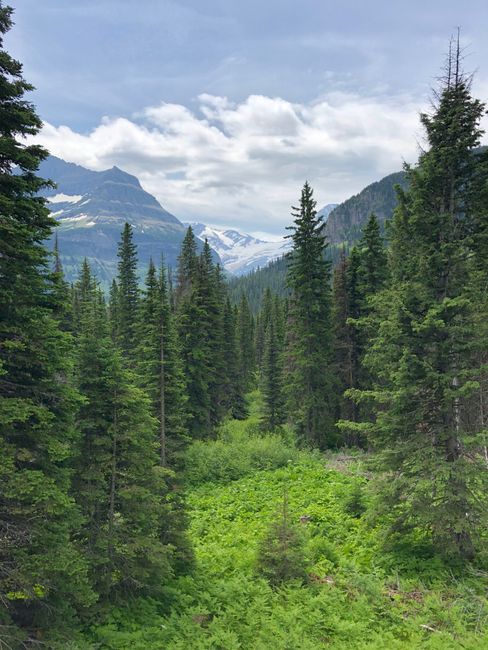
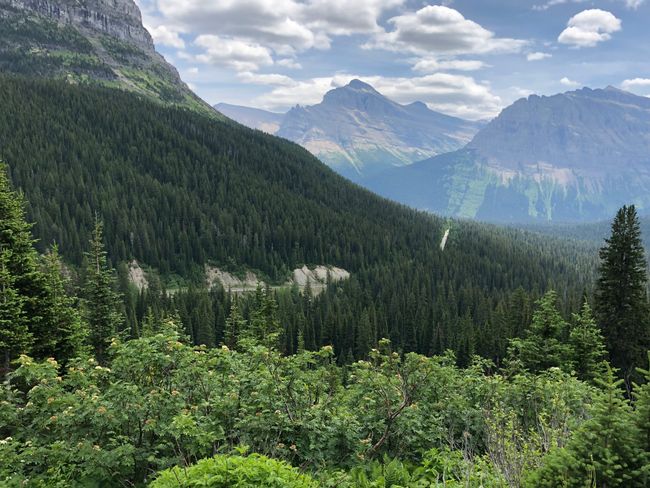
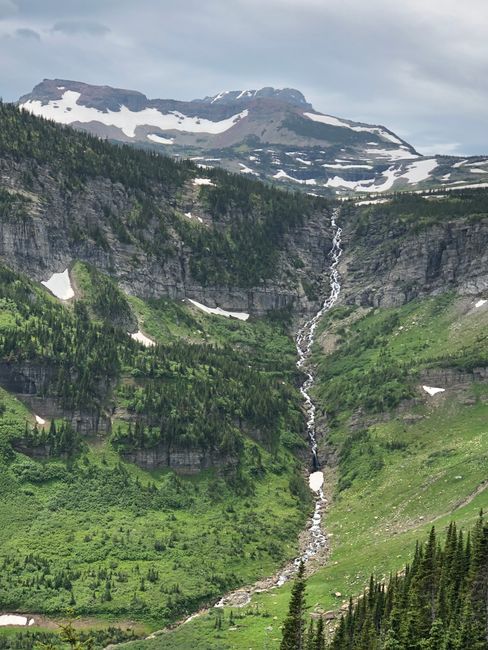
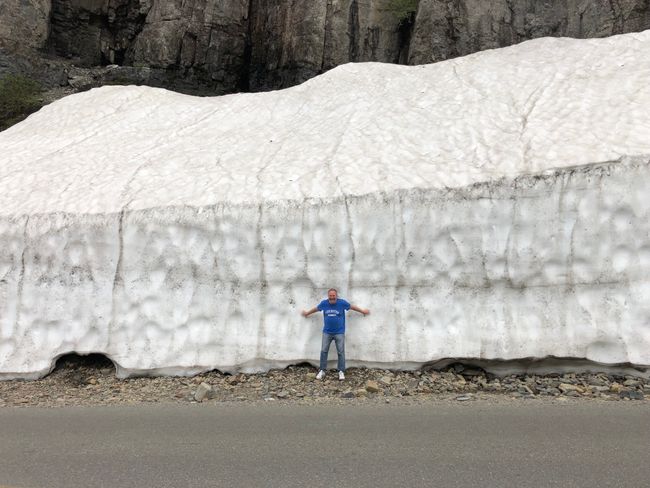
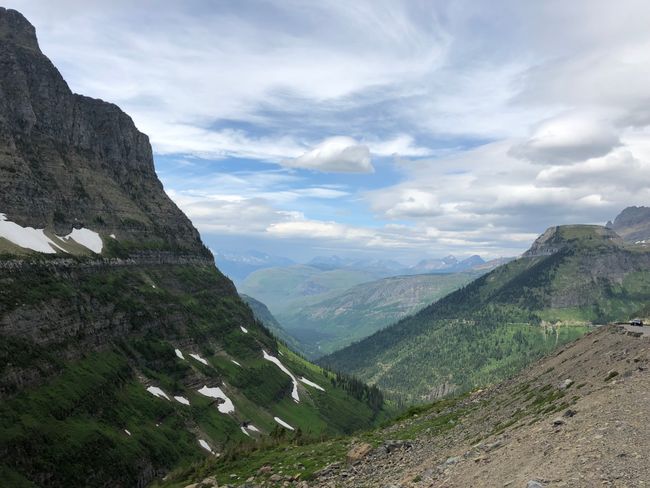
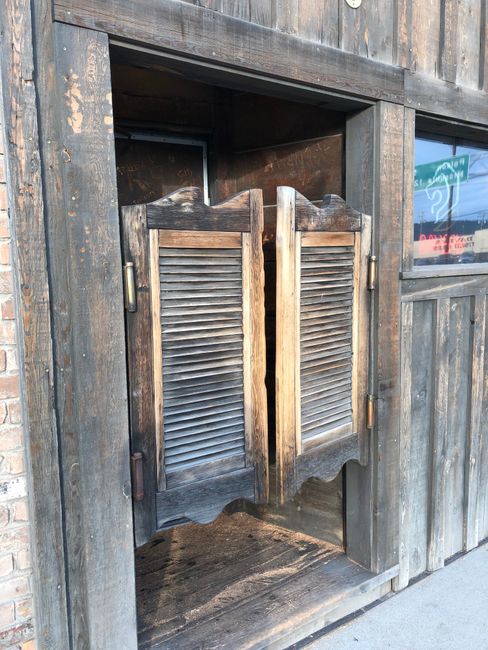
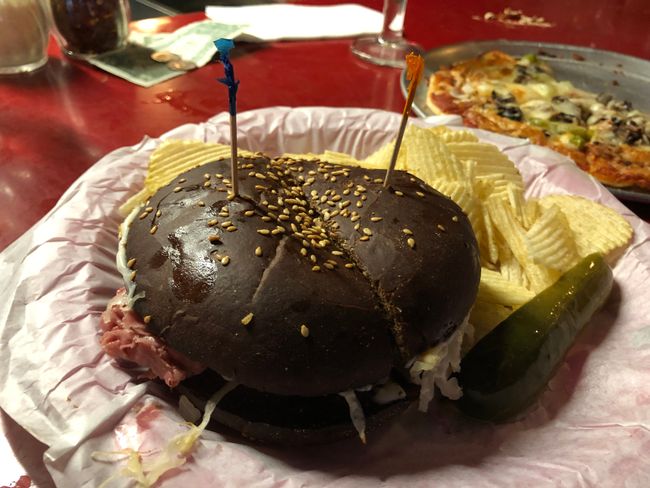
Abonnez-vous na Bulletin ya Sango
Our landlord Josh would make a lavish breakfast for $8.50. And he does everything here alone. Cleaning, preparing rooms, cooking, management. But we politely decline. It's just too much. In Canada, too, people eat a lot and sometimes well, there's no difference from our neighbor USA. However, organic food is much more prevalent here, and food is more expensive than in the USA, and much more expensive than with us. You might pay 6 euros for a bottle of organic milk there - unthinkable for us. The mantra is: work must be well paid (in this case for the dairy farmer) and subsidies are not common. With relatively high wages, I think that principle is good. It is still a booming country and immigrants are desperately sought after. However, they must meet 3 criteria: young, healthy, and well-educated. Canada rejects many if one of them does not apply. I am probably too old.
We decide to drive first before we have a less lavish meal, and go to A&W, the Canadian fast food brand next to Tim Hortons. There is also an American branch, but the two stores have been operating separately since 1972. Here too, you can at least feel that they are making an effort to work more sustainably. You can get the root beer from the frosted glass, no foamed burger packaging, and many indications that the chicken meat, for example, was produced without hormones, etc. I eat a Beyond Meat Egger, with a patty that is now also known in Germany, and the meat substitute made from pea puree and beetroot really tastes like meat.
Then the road leads towards the Canadian-US border and the streets become lonely and continue endlessly over rolling green hills, with the mountain range of Glacier National Park to the right. You can stand in the middle of the highway and take pictures - a great feeling. The border crossing takes 5 minutes, a few questions, no search, etc. Horror stories about it may be true, but I have never experienced them.
The next destination is Glacier National Park. Our Canadian national park pass is no longer valid, so we pay $35 (regardless of how many people are in the car), but it is very well invested because the 2-hour drive through the park is - what else - impressive. Numerous stops offer incredible panoramas, and you learn that of the over 100 glaciers that the park contained when it was founded in 1906, only 35 are still significantly large. Climate change. Here too, there are many trails, so anyone who wants to hike will find just as many options as the car tourist who simply wants to appreciate the beauty.
After the drive at a very leisurely pace (the maximum speed in the park is 40, but you can rarely drive over 30), we head to Kalispell, and Montana is of course hardly any different from Canada, except that the fuel is significantly cheaper and you switch from plastic Canadian dollars to paper US dollars. In the evening, we go to the Moose Saloon, a bar that has been here for 60 years and is very popular with the locals. The beer costs $2, a Reuben sandwich takes a long time, but it is delicious and the floor is covered with sawdust - a reminder of the Wild West. At 9:30 pm the place empties significantly - Americans simply go home earlier and often go to bed early as well. The advantage of this is that you still get to see the sunset, which is magnificent over Kalispell.
Abonnez-vous na Bulletin ya Sango
Eyano
